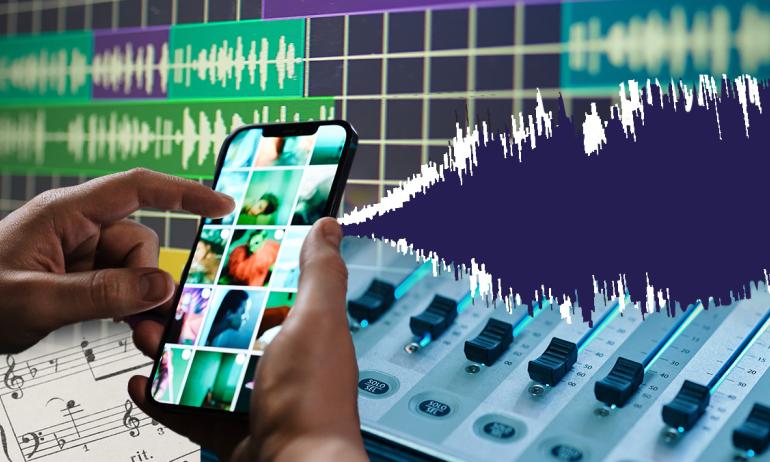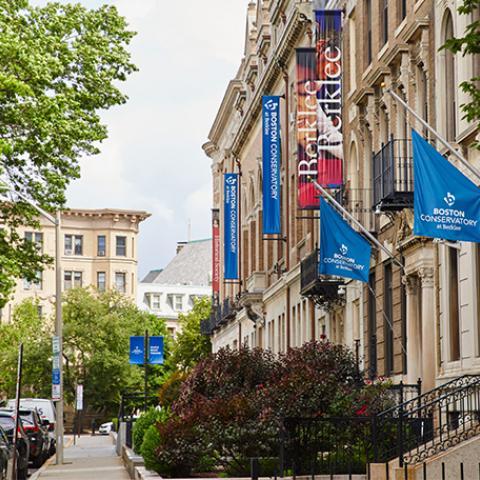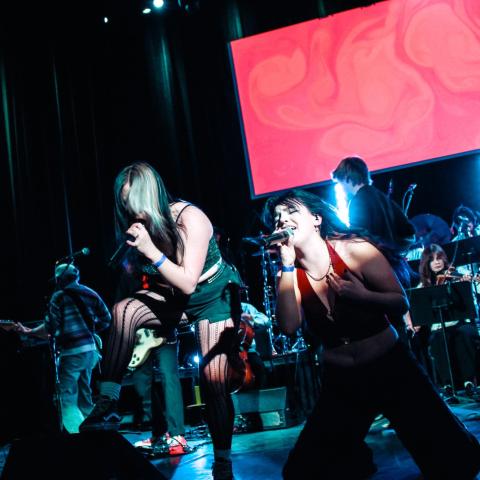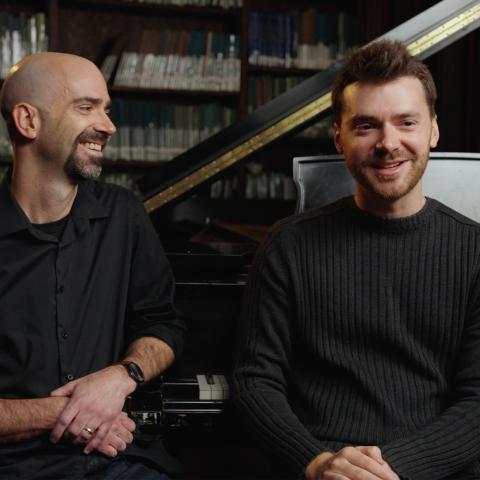Using Quarantine to Elevate Your Art

Kenny Werner, artistic director of the Effortless Mastery Institute
Image by Norbert Klinge
Over the past several weeks, as Zoom ensembles have proliferated and musicians have come up with digital solutions for band practice, many artists have found creative and productive ways to survive quarantine. But maybe thinking in terms of survival is setting the bar too low. Perhaps, says Kenny Werner, artistic director of Berklee’s Effortless Mastery Institute, musicians are being presented with a rare opportunity.
“The time we’re in has never been more conducive to elevating one’s state of mind,” Werner says, adding that such a state allows musicians to get in touch with the space inside of themselves from which great art flows.
What follows is a discussion, over email, with Werner about how to best use this concentrated alone time to enrich one’s artistic life.
Now, more than ever, what routines should musicians (especially those who are isolated at home) be developing or maintaining?
Well, of course, good, patient practicing is more possible now than ever before. Being in one place all the time with a lot of extra time available is the most conducive environment for steady, patient practice.
But it’s more than that: Restlessness of the mind causes people to practice in an impotent way, no matter what the situation is. The time we’re in has also never been more conducive to elevating one’s state of mind. As I say in my book, Effortless Mastery, artists should practice transcending the conscious mind (where all the thoughts are, and therefore all the fears and doubts) and moving into “the Space”—which is my word for every conception of elevated awareness: Holy Ghost, super-conscious mind, universal mind, whatever you like to call it. Now is the time when we either further descend into our fears, because we have more to fear, or we evolve into our higher selves. There’s never been a better opportunity in my lifetime to do that than now.
How can a musician use this time productively to advance their art?
There are two issues: advancing one's art or advancing one’s career. One can advance their art by going deeper into their own psychic makeup. The more art is truly representative of one’s own joys, sorrows, attractions, addictions, inspirations, depression, whatever—the more their art corresponds to their internal life rather than what they “think art is”—the more of an artist one becomes.
Are there some mindsets that musicians are in increased danger of adopting during quarantine that can end up hurting their playing?
The only thing that has ever hurt their playing is self-doubt. I see no more reason for self-doubt now than I did when we were free to roam. One could make the argument that there’s less reason for self-doubt, since we are not constantly in the company of other musicians who we are comparing ourselves to.
"What could we do that wasn't possible when we could go anywhere?"
What we have to attempt is practicing a positive attitude and not letting ourselves become overwhelmed. But that was also the case before the pandemic. The reasons that we work with people at the Effortless Mastery Institute—to build personal power, self-love, and a love of what one plays (which is counterintuitive to the concept of school)—have become more relevant than ever. When one is playing, they should be practicing receiving and loving whatever is coming out. Otherwise, they break the groove.
You say that you never play at home. Why? And has quarantine changed that?
Why? Because I really like to play if people are listening. In that sense, I am more of a common man. I never sit at home knocking myself out, and I don’t practice creativity. I don’t practice breathing either. I just breathe.

Kenny Werner on the piano
Image by Rob Davidson
But I am playing a lot now. Being in this situation has given me the opportunity to personally connect with more students and teachers, as well as the greater community, the alumni. They come to my forums on Wednesday nights. We wanted to reach the alumni and make sure they stay tuned in because someday we will have something for them, such as retreats where they will absolutely connect with their instruments again. This is important because many of them went through the school system and never loved themselves enough to continue to play. They may have been fabulously successful in other areas, but that guitar just sits in the corner. Now we can reach them!
So there are many blessings in disguise. I can demonstrate to the community the liberation that is possible when one touches their instrument. I find myself playing all the time. And because I don’t go anywhere, I’m actually practicing more than I ever did. I’ve even started to try to learn French. I’m a very bad student so it will take a long time, but you know what? I suddenly had a lot of time.
This is the way we have to solve a problem internally: What could we do that wasn’t possible when we could go anywhere? What can we do for our students that we couldn’t have done if we weren’t quarantined? It’s an interesting question and, I believe, the most fruitful way to look at quarantine. A lot of my students will agree that they’ve had more contact with me out of sheer compassion than we would’ve ever had when I was driving to Boston. I was just telling some of my colleagues that I feel like more of a first responder than a professor. It has elevated my vibration and it has energized me.
It is funny you ask this question because I just had my tuner here. He was here probably three weeks ago. Because I never touch my piano when I’m home, I probably have him here two to three times a year. He was surprised when I called him so soon. I said, “Joe, you’ve got to tune my piano again. Suddenly, I’m playing it all the time!“
Is the type of music you play these days different from what you normally play?
No. The type of music I’ve been playing for the last six years since I’ve been teaching effortless mastery has changed. Now my goal is not so much to play great in my own interests, but to show people what’s possible for them, that anyone can have this. In these years, I’ve been playing a lot more “free music“ than I did in the past, when the music was more rehearsed. I put that in quotes because to me it’s not really “free music” anymore; it’s “spontaneously composed” music.
Kenny Werner plays 'Prayers for the World' from his home.
What comes out of me I could write down. There are no wasted notes. It’s as if scrolls of scores were unfolding from a blue sky. I never make music anymore; I follow it, and as long as I don’t get ahead of it, it’s pretty much perfect. I don’t say that with ego, because the more you get in line with it the less you feel you had to do with it.
If you’d like to attend one of Kenny Werner’s Wednesday forums, please visit berklee.edu/




